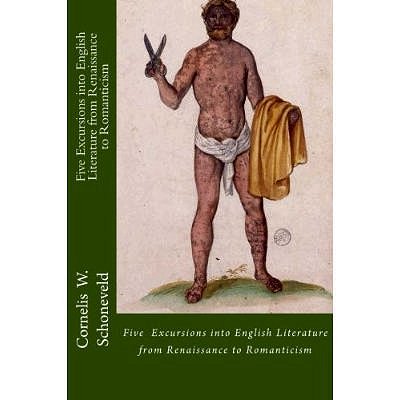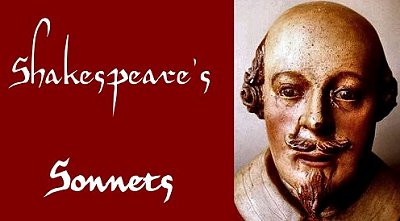Fleurs du Mal Magazine


Or see the index

William Shakespeare
Sonnet 152
In loving thee thou know’st I am forsworn,
But thou art twice forsworn to me love swearing;
In act thy bed-vow broke and new faith torn,
In vowing new hate after new love bearing;
But why of two oaths’ breach do I accuse thee,
When I break twenty? I am perjured most,
For all my vows are oaths but to misuse thee,
And all my honest faith in thee is lost.
For I have sworn deep oaths of thy deep kindness:
Oaths of thy love, thy truth, thy constancy,
And to enlighten thee gave eyes to blindness,
Or made them swear against the thing they see.
For I have sworn thee fair: more perjured eye,
To swear against the truth so foul a lie.
William Shakespeare
Sonnet 152
Liefde voor jou maakt, weet je, dat ik loog,
Maar jij loog dubbel met jouw liefdes-eden:
Je bed-eed brak je en nieuwe trouw vervloog,
Met liefde nieuw gebaard, en nieuwe haat beleden;
Maar mag ‘k om dubbele eedbreuk jou beleren,
Als ik er twintig breek? Mij treft meer schuld,
Want iedere eed dient slechts om jou te onteren,
En mijn geloof in jou werd nooit vervuld.
Want diep vertrouwde ik op jouw mededogen,
Bezwoer je liefde, trouw, standvastigheid,
En schonk voor licht in jou aan blindheid ogen,
Of dwong hun blind te zijn voor zichtbaarheid.
Mijn eed bood jou verschoning: meineed oog,
Dat jij de waarheid zo vervuild beloog!
Vertaald door Cornelis W. Schoneveld
(dec. 2012)
kempis.nl poetry magazine
More in: Shakespeare

William Shakespeare
(1564-1616)
THE SONNETS
Sonnet 148
O me! what eyes hath love put in my head,
Which have no correspondence with true sight,
Or if they have, where is my judgment fled,
That censures falsely what they see aright?
If that be fair whereon my false eyes dote,
What means the world to say it is not so?
If it be not, then love doth well denote,
Love’s eye is not so true as all men’s: no,
How can it? O how can love’s eye be true,
That is so vexed with watching and with tears?
No marvel then though I mistake my view,
The sun it self sees not, till heaven clears.
O cunning love, with tears thou keep’st me blind,
Lest eyes well-seeing thy foul faults should find.
Sonnet 148
O liefde! wat doe jij mijn ogen aan,
Die niet meer meezien met het ware zicht,
Of wat heb je anders met mijn brein gedaan,
Dat wat zij juist zien van bedrog beticht?
Is ’t zuiver, waar mijn valse oog mee dweept,
Waarom is ’t gros het daar dan niet mee eens?
Is ’t vals, dan wordt door liefde onderstreept
Dat ’t liefdesoog meer dwaalt dan iedereens:
Hoe nu? Geeft waarheid licht in ’t liefdesoog,
Zo zeer door tranen en gestaar belaagd?
Niet vreemd dan, als mijn inzicht mij beloog,
De zon is ook blind, tot een blauw zwerk daagt.
O sluwe liefde, jij houdt mij met tranen blind,
Opdat geen welziend oog jouw streken vindt.
Vertaling Cornelis W. Schoneveld
(november 2012)
kempis.nl poetry magazine
More in: Shakespeare, Shakespeare, William

Percy Bysshe Shelley
(1792-1822)
Good-night
Good-night? ah! no; the hour is ill
Which severs those it should unite;
Let us remain together still,
Then it will be good night.
How can I call the lone night good,
Though thy sweet wishes wing its flight?
Be it not said, thought, understood –
Then it will be — good night.
To hearts which near each other move
From evening close to morning light
The night is good, because, my love,
They never say good-night.
Slaap zacht
Slaap zacht? o nee, het uur valt zwaar
Dat binden moest wie scheiden wacht;
Verblijven wij steeds bij elkaar,
Dan wordt het pas: slaap zacht.
Hoe noem ik slapen “zacht”, alleen,
Al steunt ’t zijn vlucht als jij ’t lief zegt?
Maar komt voor ’t zeggen, ’t wensen, geen
Moment, volgt slaap zacht echt.
Voor harten altijd dicht tesaam,
Van ’s avonds laat tot ’s morgens vroeg,
Is nachttijd, liefste, aangenaam
En slaap al zacht genoeg.
Vertaling Cornelis W. Schoneveld 2012
Percy Bysshe Shelley poetry
kempis.nl poetry magazine
More in: Percy Byssche Shelley, Shelley, Shelley, Percy Byssche

William Shakespeare
Sonnet 146
Poor soul the centre of my sinful earth,
My sinful earth, these rebel powers’ array,
Why dost thou pine within and suffer dearth
Painting thy outward walls so costly gay?
Why so large cost having so short a lease,
Dost thou upon thy fading mansion spend?
Shall worms inheritors of this excess
Eat up thy charge? is this thy body’s end?
Then soul live thou upon thy servant’s loss,
And let that pine to aggravate thy store;
Buy terms divine in selling hours of dross;
Within be fed, without be rich no more,
So shall thou feed on death, that feeds on men,
And death once dead, there’s no more dying then.
William Shakespeare
Sonnet 146
Mijn ziel, arm centrum van mijn zondige aard’,
Mijn zondige aard’, rebelse macht vol strijd,
Waarom kwijn je van binnen, niets meer waard,
Je gevel duur beschilderend in vrolijkheid?
Waarom verdoe je voor zo’n korte huur
Fortuinen aan je villa in verval?
Erven de wormen eens jouw last zo duur?
Is’t voer voor hen dat jouw lijf bieden zal?
Ziel, leef dan op ’t verlies van jouw vasal,
Vermager hem, verzwaar ermee je buit;
Koop eeuwen tijd, verkoop elk uur’s verval;
Voed je innerlijk, gun je uiterlijk geen duit,
Dan voedt de dood jou, die de mens verzwelgt,
Sterft dan de dood, is ’t sterven ook verdelgd.
Vertaling Cornelis W. Schoneveld
(oktober 2012)
kempis.nl poetry magazine
More in: Shakespeare

William Shakespeare
Sonnet 145 (1)
Those lips that Love’s own hand did make,
Breathed forth the sound that said ‘I hate’
To me that languished for her sake:
But when she saw my woeful state,
Straight in her heart did mercy come,
Chiding that tongue that ever sweet,
Was used in giving gentle doom:
And taught it thus anew to greet:
‘I hate’ she altered with an end,
That followed it as gentle day,
Doth follow night who like a fiend
From heaven to hell is flown away.
‘I hate’ from hate away she threw,
And saved my life saying ‘not you’.
Die mond, door Liefde zelf bedacht,
Blies een geluid, dat sprak ‘ik haat’
Tot mij, die kwijnend naar haar smacht.
Maar, ziende op mijn droeve staat,
Beving genade prompt haar hart;
Boos op die tong, altijd zo zoet,
Die mild verdoeming was gestart,
Dicteerde z’ hem een nieuwe groet:
Ze gaf ‘Ik haat’ een ander slot,
Dat volgt zoals een milde dag
Volgt op een nacht die als anti-god
Uit d’ hemel helwaarts vluchten mag,
Haat in ‘ik haat’ verwierp ze gauw,
En spaarde mij met haar ‘niet jou’.
Vertaling Cornelis W. Schoneveld (oktober 2012)
[1] Het opmerken waard is, dat dit van Shakespeare’s 154 sonnetten het enige is dat acht letergrepen per regel telt, in plaats van de 10 welhaast voorgeschreven door gehele Engelse sonnet traditie heen.
kempis.nl poetry magazine
More in: Shakespeare

William Shakespeare
Sonnet 143
Lo as a careful huswife runs to catch
One of her feathered creatures broke away,
Sets down her babe and makes all swift dispatch
In pursuit of the thing she would have stay:
Whilst her neglected child holds her in chase,
Cries to catch her whose busy care is bent,
To follow that which flies before her face,
Not prizing her poor infant’s discontent;
So run’st thou after that which flies from thee,
Whilst I thy babe chase thee afar behind,
But if thou catch thy hope turn back to me:
And play the mother’s part, kiss me, be kind.
So will I pray that thou mayst have thy Will,
If thou turn back and my loud crying still.
Sonnet 143
Zoals bezorgd een huisvrouw rennen gaat
Achter haar pluimvee aan als ’t haar ontvlucht,
Zo rap ze kan, en baby achterlaat,
Op zoek naar wat zich vrijvocht uit haar tucht:
Met het verwaarloosd kind achter zich aan,
Dat om haar aandacht krijst, als zij zich wijdt
Aan jacht op wat haar zicht dreigt te ontgaan,
Onaangeroerd door kleuter’s zieligheid;
Zo ren jij acherna wat jou ontsnapt,
En ik je peuter houd je lang niet bij:
Kom terug als je die taak hebt opgeknapt:
En speel de moederrol, wees lief, kus mij.
Zo zal ik bidden dat jouw Wil je zint,
Als jij mijn krijten stilt en mij hervindt.
Vertaling: Cornelis W. Schoneveld, sept 2012
kempis.nl poetry magazine
More in: Shakespeare

Five Excursions into English Literature from Renaissance to Romanticism by Cornelis W. Schoneveld
Dear Readers of Fleursdumal Magazine,
Some of you might be interested to respond to my experiment in the new phenomenon of self-publishing. During my active life as a researcher in the field of English literature, a few of the finished results were only published in abstract form, or in media with limited circulation. Instead of letting them ultimately go to waste, I have now put them together between the covers of one volume, and also in e-book form , via CreativeSpace, which is a subsidiary of www. amazon. com. CreateSpace is based in the USA, and to order the book there would involve a postage fee higher than the bookprice, but it is also available from w.w.w.amazon.de , (Germany) at a minimal price, with free delivery in the EU. Here is the link; the bottom of the page contains is a description of the (varied) contents.
Warm regards,
Cornelis W. Schoneveld

Five Excursions into English Literature from Renaissance to Romanticism [Englisch] [Paperback)
Cornelis W. Schoneveld (Author)
Of the five research essays collected here, two are excursions by the author chronologically outlining and discussing the history of English novel criticism from 1660 to 1800, and paying special attention to the terms ‘novel’, ‘romance’ and ‘history’. Two are concerned with excursions dealt with in literary texts themselves, the first being on how continental excursions by English Renaissance gentlemen influenced their dress habits as these were discussed and criticized at home; the second being on the haunting excursion undertaken by Coleridge’s Romantic Ancient Mariner, showing how and why it can be interpreted as his agonizing introduction into becoming a literary artist. The fifth essay maps out the excursion of Alexander Pope’s Essay on Man into Holland, by way of the five translations made of it in the 18th and 19th centuries, supplemented with a checklist of all his other works translated into Dutch. The research was done some time ago, but the results were not published earlier otherwise than in abstract form or in media with limited circulation. For many years Dr. C.W. Schoneveld was lecturer in the history of English Literature at the University of Leiden, the Netherlands. Two of his publications are Intertraffic of the Mind, Studies in 17th-Century Anglo-Dutch Translation (1983), and Sea-Changes, Studies in Three Centuries of Anglo-Dutch cultural Transmission (1996). His most recent work is a translation of 100 English poems into Dutch from the 16th to the 19th centuries in bilingual edition entitled Bestorm my Hart, (Amsterdam 2008), and a fully annotated translation of Sir Thomas Browne’s Religio Medici, with an introductory essay, (Amsterdam, 2011).
About Cornelis W. Schoneveld: For many years Dr. C.W. Schoneveld was lecturer in the history of English Literature at the University of Leiden, the Netherlands. Two of his publications are Intertraffic of the Mind, Studies in 17th-Century Anglo-Dutch Translation (1983), and Sea-Changes, Studies in Three Centuries of Anglo-Dutch cultural Transmission (1996). His most recent work is a translation of 100 English poems into Dutch from the 16th to the 19th centuries in bilingual edition entitled Bestorm mijn Hart, (Amsterdam 2008), and a fully annotated translation of Sir Thomas Browne’s Religio Medici, with an introductory essay, (Amsterdam, 2011).
Amazon.de
Taschenbuch: 118 Seiten
Editon: CreateSpace Independent Publishing Platform (8. August 2012)
Englisch text
ISBN-10: 1478347082
ISBN-13: 978-1478347088
Cornelis W. Schoneveld: Poetry in translation
fleursdumal.nl magazine
More in: Art & Literature News, POETRY IN TRANSLATION: SCHONEVELD

John Keats
(1795-1821)
“When I have fears”
(sonnet)
When I have fears that I may cease to be
Before my pen has gleaned my teeming brain,
Before high-piled books, in charactery,
Hold like rich garners the full ripened grain;
When I behold, upon the night’s starred face,
Huge cloudy symbols of a high romance,
And think that I may never live to trace
Their shadows, with the magic hand of chance;
And when I feel, fair creature of an hour,
That I shall never look upon thee more,
Never have relish in the fairy power
Of unreflecting love; – then on the shore
Of the wide world I stand alone, and think
Till love and fame to nothingness do sink.
“Als vrees mij treft”
Als vrees mij treft dat ’k aan mijn einde ben
Voordat met letters uit mijn vloeiend brein
Een boekenberg gevuld is door mijn pen,
Zoals schuren vol met rijpe granen zijn;
Als ik, bij sterrennacht, in ’t wolkenbeeld
Verheven stof voor een Romance zie,
En denk dat mij geen tijd is toebedeeld
Voor ’n schets daarvan, met de hand van de magie.
En als ik voel, schoon schepsel van een uur,
Dat ik met jou nooit nog een weerzien vier,
Nooit meer genoegen schep in ’t tovervuur
Van onbezonnen min; – dan sta ik hier
Alleen op ’s werelds strand, en overweeg –
Tot roem en liefde voos geworden zijn en leeg.
Vertaling: Cornelis W. Schoneveld
(in Bestorm mijn hart, de beste Engelse gedichten uit de 16e-19e eeuw, Rainbow Essentials no 55, pp. 230-31)
fleursdumal.nl magazine
More in: Archive K-L, John Keats, Keats, Keats, John

William Shakespeare
Sonnet 132
Thine eyes I love, and they as pitying me,
Knowing thy heart torment me with disdain,
Have put on black, and loving mourners be,
Looking with pretty ruth upon my pain.
And truly not the morning sun of heaven
Better becomes the grey cheeks of the east,
Nor that full star that ushers in the even
Doth half that glory to the sober west
As those two mourning eyes become thy face:
O let it then as well beseem thy heart
To mourn for me since mourning doth thee grace,
And suit thy pity like in every part.
Then will I swear beauty herself is black,
And all they foul that thy complexion lack.
William Shakespeare
Sonnet 132
Ik heb jouw ogen lief, en zij uit deernis mij
Maar kwellen mij, jouw hart ziend als ontrouw;
Dus zwart gefloerst in liefde treuren zij,
Mijn pijn aanschouwend in hun fraaie rouw.
Voorwaar, de hemelzon in ochtendluister
Verlicht de grijze oostwang minder goed,
Ook wordt het westen dof in avondduister
Door Venus veel halfslachtiger begroet
Dan elk oog jouw gelaat met rouwen viert:
O, dat het evenzeer jouw hart bekoort
Voor mij te rouwen, daar zo’n rouw jou siert,
Waarmee elk deel je deernis toebehoort.
Dan zweer ‘k dat schoonheid zelf met zwart verkeert,
En elk als klad oogt die jouw kleur ontbeert.
Vertaald door Cornelis W. Schoneveld, juni 2012
kempis.nl poetry magazine
More in: Shakespeare

William Shakespeare
Sonnet 130
My mistress’ eyes are nothing like the sun,
Coral is far more red, than her lips red,
If snow be white, why then her breasts are dun:
If hairs be wires, black wires grow on her head:
I have seen roses damasked, red and white,
But no such roses see I in her cheeks,
And in some perfumes is there more delight,
Than in the breath that from my mistress reeks.
I love to hear her speak, yet well I know,
That music hath a far more pleasing sound:
I grant I never saw a goddess go,
My mistress when she walks treads on the ground.
And yet by heaven I think my love as rare,
As any she belied with false compare.
William Shakespeare
Sonnet 130
Geen zonlicht gloeit in ‘t oog van wie ik hou,
Nooit wordt haar liprood met koraal verward,
Is sneeuw soms wit, dan zijn haar borsten grauw,
Is hoofdhaar draad, dan zijn haar draden zwart;
Gevlamde rozen ken ik, rood en wit,
Maar haar wang toont geen roos die zo ontluikt,
Er zijn parfums waar zoeter geur in zit
Dan waar de adem van mijn lief naar ruikt.
Al houd ik van haar stem, ik zie goed in,
Muziekklank zweeft veel aangenamer rond;
‘t Is waar, gaan zag ik nooit nog een godin,
Als mijn lief wandelt treedt ze op de grond.
En toch, bij God, ik acht mijn lief zo hoog,
Als elke vrouw bedot met vals vertoog.
(nieuwe vertaling Cornelis W. Schoneveld, mei 2012)
kempis.nl poetry magazine
More in: -Shakespeare Sonnets, Shakespeare

William Shakespeare
Sonnet 129
The expense of spirit in a waste of shame
Is lust in action; and till action, lust
Is perjured, murderous, bloody, full of blame,
Savage, extreme, rude, cruel, not to trust;
Enjoyed no sooner, but despisèd straight;
Past reason hunted; and no sooner had,
Past reason hated, as a swallowed bait,
On purpose laid to make the taker mad;
Mad in pursuit, and in possession so;
Had, having, and in quest to have, extreme;
A bliss in proof and proved, a very woe;
Before, a joy proposed; behind, a dream.
All this the world well knows; yet none knows well
To shun the heaven that leads men to this hell.
Sonnet 129
Verzieking der ziel in schandelijk verval,
Dat is de daad der lust; lust tot de daad
Is meineed, bloeddorst, moord, bitterste gal,
Extreem, verwilderd, ruw, wreed, vol verraad;
Amper gesmaakt, of prompt al weer veracht;
Zinloos begeerd, de buik nog amper vol,
Of zinloos weer gehaat, want aangebracht
Als lokaas, maakt het hem die toehapt dol;
Dol in de jacht, en in verovering;
Hebbend, gehad, en hebberig: zonder toom;
Zalig de daad; gedaan, een zielig ding;
Ervoor, verwacht genot; erna, een droom.
Wel weet de wereld dit, maar weet niet wel
D’ hemel te mijden leidend naar die hel.
Vertaald door Cornelis W. Schoneveld, Bestorm mijn hart, (2008, pp. 53-55); herziening feb. 2012
kempis.nl poetry magazine
More in: -Shakespeare Sonnets, Shakespeare

Shakespeare Sonnet 123
No! Time, thou shalt not boast that I do change,
Thy pyramids built up with newer might
To me are nothing novel, nothing strange,
They are but dressings of a former sight:
Our dates are brief, and therefore we admire,
What thou dost foist upon us that is old,
And rather make them born to our desire,
Than think that we before have heard them told:
Thy registers and thee I both defy,
Not wond’ring at the present, nor the past,
For thy records, and what we see doth lie,
Made more or less by thy continual haste:
This I do vow and this shall ever be,
I will be true despite thy scythe and thee.
Shakespeare Sonnet 123
Nee! snoeven dat ik wankel zal niet gaan,
O Tijd: jouw pyramides nieuw gebouwd–
Modern of vreemd doen zij mij heus niet aan,
Hun kruik mag nieuw zijn, maar hun wijn is oud;
Wij leven kort, en dus bewonderen wij
Wat jij ons opdist dat op leeftijd is,
En doen er wat gewild en jong is bij,
Veel liever dan oude geschiedenis;
Jou en je leggers, nooit door mij vertrouwd,
Bevraag ik niet voor ’t nu, noch voor het toen,
Want wat jij vastlegt en wij zien is fout,
Vergroot, verkleind, door ’t steeds gehaast te doen;
Dit zweer ik nu voor eeuwig: ik blijf trouw,
En dat ondanks je zeis en ondanks jou.
Vertaling Cornelis W. Schoneveld, april 2012
kempis.nl poetry magazine
More in: Shakespeare, Shakespeare, William
Thank you for reading Fleurs du Mal - magazine for art & literature